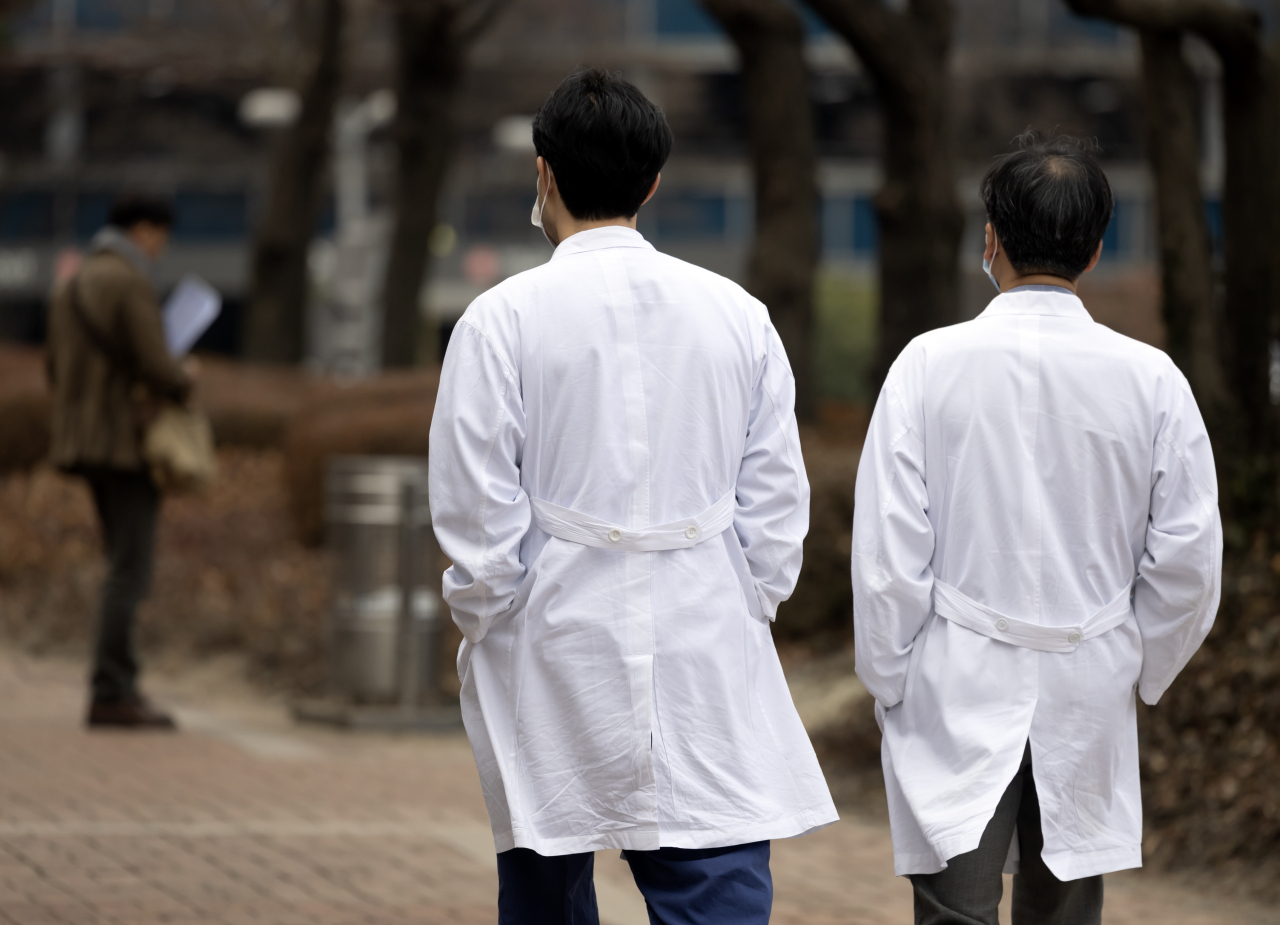Doctors, government lock horns over medical school expansion
Despite government’s warning of stern measures, doctors likely to walk out after Lunar New Year holiday
By Park Jun-heePublished : Feb. 8, 2024 - 12:02

Medical circles continue to lock horns with the government following the announcement of an increase in medical school enrollment quotas by 2,000 from the current 3,058, as they mull joint action in protest of the decision.
In response, the Health Ministry said Thursday afternoon it had issued orders to prohibit doctors from engaging in collective action and specialists from resigning en masse.
The ministry raised the national health crisis level to alert -- the third highest in the four-tier warning system -- in connection with the potential strike. It has set up a central accident management headquarters within the ministry to deal with doctors’ collective action.
In addition, the ministry has established emergency medical response situation rooms in central and local governments to prevent disruption at medical centers.
“The government will mobilize all means prescribed by law to pursue a pan-governmental response to protect the lives and health of the people,” Second Vice Minister of Health and Welfare Park Min-soo said during a press briefing.
Following Lee Pil-soo’s resignation Tuesday as head of the Korean Medical Association -- the country’s largest coalition of doctors’ groups with some 130,000 members, the group convened a high-level meeting with members of its general assembly late Wednesday where it decided to establish an emergency response committee to try to flip the government’s decision.
The meeting was initially set after the Lunar New Year holiday but was moved up considering the “gravity of the situation,” the KMA said. The specific plans for the walkout will be put in place next week, observers suggest.
The KMA suggested the negotiations with the government had been in bad faith, saying in a statement that “The government wasted time by pulling the medical negotiation body this way and that like a dog on a leash, and when its goal of increasing the medical school enrollment was about to be fulfilled, it abandoned it like an owner who grew tired of their pet,” the KMA said in a statement.
“(The KMA) will set up an emergency body to block the hike in medical school enrollment in the most powerful way possible and grant full authority to the body for this fight,” the statement further read.
Interns, residents and trainee doctors at tertiary care hospitals, including big-name hospitals, are also considering the move.
Park Dan, the head of the Korea Intern Resident Association, wrote on his social media on Wednesday that he “regrets the government’s unilateral decision,” adding that the trainee doctors would consider “all necessary measures” against it.
The KIRA said that 88.2 percent of the junior doctors had expressed their willingness to participate in the collective action, citing a survey they conducted on 10,000 specialists and 140 teaching hospitals.
Of the total, 86.5 percent of junior doctors at the so-called “big five” hospitals said they would walk out, it added. The five hospitals are Seoul National University Hospital, Severance Hospital, Samsung Medical Center, Asan Medical Center and the Catholic University of Korea Seoul St. Mary’s Hospital.
According to reports citing health care sources, specialist associations at several hospitals are in talks to form their own emergency response committees so that they can take part in the strike immediately.
In 2020, thousands of junior doctors threw away their white coats in response to the government’s plan to have more medical students. More than 80 percent of them walked out, with some of them even quitting, causing extreme disruption to patient care.
“(The hospital) hasn’t decided yet on how it would respond to trainee doctors going on strike, nor do we know the exact figure (on the number of participants) and if they actually will (strike) because nothing has happened at this point,” an official at one of the big five hospitals, who wished to speak on the condition of anonymity, told The Korea Herald, declining to comment further.
Under the Medical Service Act, the government can issue an order for doctors to work if they go on strike. Doctors must immediately return to their hospital upon receiving the order. They may have their medical licenses revoked and get a prison term of up to three years or be fined up to 30 million won ($22,600) if they do not comply.
Doctors can also be punished for breaching the Medical Service Act, fair trade laws and for the obstruction of business if they refuse to provide medical treatment en masse.



















